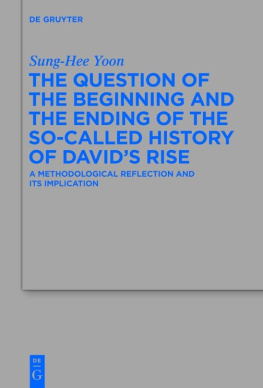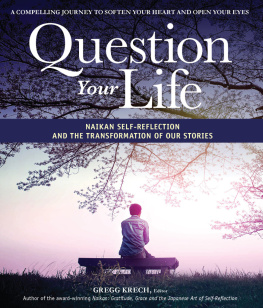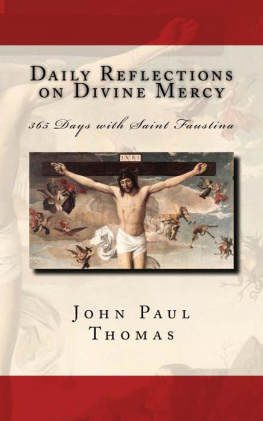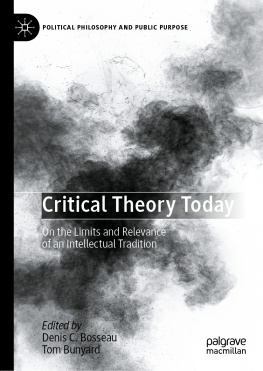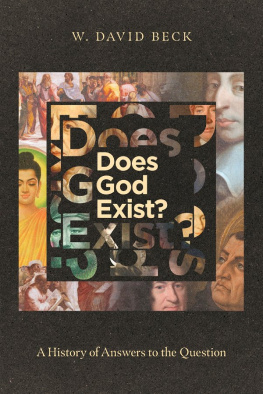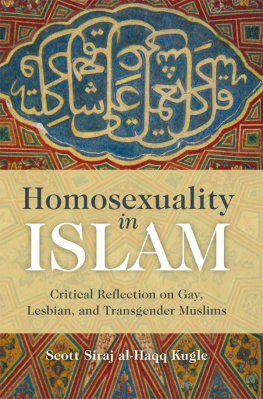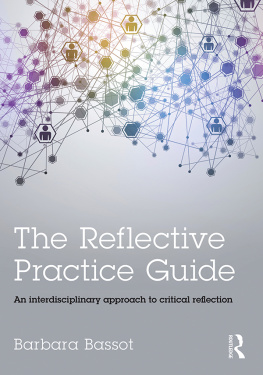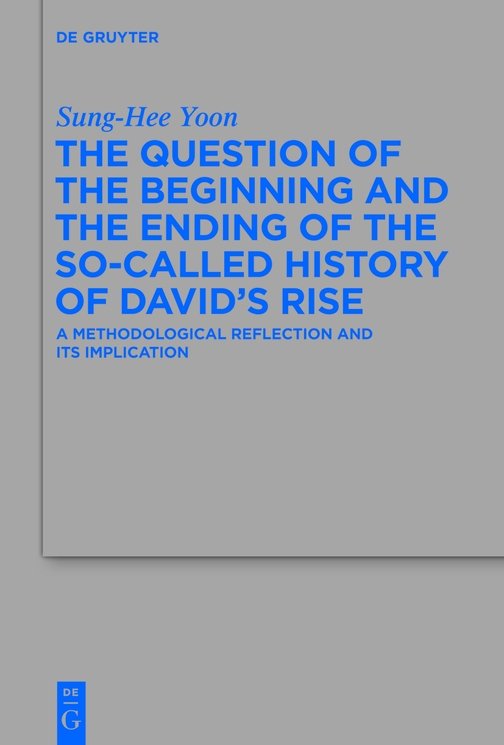Acknowledgments
This monograph is a slightly revised version of my doctoral thesis, completed and examined in 2011. Without many peoples help, the completion of this work would have been impossible, and I am pleased to have a chance to express my gratitude to them. Above all, I express my sincere gratitude to my Doktorvater Prof. John Barton for his unfailing support and continuous inspiration. His support never ceased even after my doctoral years, and indeed, without his encouragement, I could not have pulled myself together to get this work published. I am also grateful to my doctoral examiners, Dr. John Jarick and Prof. Francesca Stavrakopoulou for their constructive critique and helpful advice. For failing to follow their suggestions, I have nobody to blame but myself.
I thank those who have helped me greatly at various stages of this project. Prof. Kevin Cathcart has always been kind to offer me wise advice and priceless friendship. It was always a great pleasure to have a chat with him about all sorts of topic. Dr. Gerry J. Hughes also helped me a great deal, especially by challenging my position with pleasantly provocative questions. Prof. Reinhard Kratz kindly invited me to work in the University of Gttingen for a term, so that I could engage more intensively with German scholarship. Jesuits in Britain and in Korea provided me with financial and spiritual support, so that I could concentrate on my work without much distraction. I also would like to thank my former teachers, Prof. Bong-mo Song, SJ, Drs. Ann Jeffers and Jennifer Dines, for their inspiration and encouragement. And my special thanks are extended to Sabina Dabrowski, Sophie Wagenhofer and Katrin Mittman for helping me to prepare the manuscript for publication.
Finally, I would like to thank my family and my friends. I offer my affectionate thanks to my mother for her love and care, and to my wife So Young and my son Sang-Hyeon for being my source of joy. And to Peter Gallagher, Alan Harrison, John Montoya, Jonah Suh, and Ji-Won Jung, I owe a debt of gratitudefor their priceless friendship. This book is dedicated to the late Fr. Matthias Chae whose friendship and wise advice I miss so much.
Conclusion
To summarize the outcomes of our studies in this monograph, the pre-deuteronomistic HDR begins with 1Sam 16:14 and ends with 2Sam 5:3, and this was perhaps composed in the Hezekian period as persuasion literature with a view to supporting Hezekiahs attempt to incorporate the northern kingdom into Judah, not long after the fall of Samaria. The composition might have been intended to persuade the northerners that they should join Judah in fighting against, or in seeking independence from, the Assyrians, especially because Hezekiah, a descendant of David, is the legitimate successor of the founder of the northern kingdom. Additionally, I have proposed that this work, which I have also called the HDR proper, was incorporated into the Deuteronomistic History by the late exilic Deuteronomist, in order to make the point that the restoration of the Davidic monarchy and the Jerusalem temple were essential for the restored Israel. This late exilic deuteronomistic redaction was initiated by the hope of restoration, and influenced by a growing interest in storytelling in the literary atmosphere of the time. Perhaps, this is when the attempt to create a story about David covering his entire life span was made for the first time. Finally, I suggested the possibility that in the post-exilic period, the story of Davids rise went through another major redaction and was given its final shape. The redactional work seems to have been motivated, partly by a certain unease among a group of leaders about Nehemiahs nationalistic policy, and partly by the novelistic impulse that was sprouting at the time. The redactor may have attempted to produce a more enjoyable and less partisan story about the founder David, in order to counterbalance Nehemiahs exclusivism.
It is worth mentioning at this point that these conclusions are reached through a number of judgements on the relevant issues. First, my interpretation of the HDR as a whole was that the Tendenz is not unambiguously pro-Davidic, and therefore the work is not propagandistic, and this made it impossible that the HDR as we have it now can be distinguished from the SN without further clarification. The David story cannot be divided into two independent self-contained sources on the basis of their clearly distinct Tendenzen. Second, the HDR as a whole however is stylistically different from the SN, in that the latter is characterized by its more or less coherent, deadpan style, while the former shows a mixture of rather a simple report-like style and a novelistic style. This made it reasonable to assume the literary independence between the HDR and the SN, although the stylistic mixture found in the HDR needs an explanation. Third, the novelistic style found in the HDR resembles the later Jewish novels, and this made it plausible that there was a redactional work whose literary quality might anticipate later works such as Esther and the story of Susanna. Fourth, thematically, both the HDR and the SN deal with the fall and rise of a king, and this made it likely that a redactional work was attempted to combine them into one continuous narrative about David; and its pro-Davidic and pro-Jerusalem position makes it most likely that the redactional work was deuteronomistic.
Several judgments on the issues that are not directly related to our concern also affected our decisions our dating in particular, and the way in which the issues are discussed. First, it is assumed that the composition of an extensive narrative work as early as the 10th9th century, or even the 8th7th century B.C.E. is unlikely. This prompted us to date the creation of the David story that expands from his rise to his death later rather than earlier. Second, it is taken into consideration that the historical evidence for the existence of David is very thin. Although it seems more plausible that David did exist, the insufficiency of the evidence made us more cautious about believing in the existence of a historically reliable narrative about David in a very early period. Third, it is surmised that a genre develops in such a way that shorter and more straightforward works develop into complex and ambiguous works. This enabled us to posit that there was a major expansion of the Deuteronomistic History which transformed a theological chronicle into a narrative history. Fourth, it is also presumed that an extraordinarily artistic and rich piece of literature was less likely to have arisen in a small marginal part of the world than in the great powers of the world of the time. This inclined us to conjecture that the sophisticated literary artistry in the books of Samuel came after similar literature became popular in Neo-Babylonia or in Persia, and that the narrative expansion is more likely to have begun in the late exilic period. Finally, it is assumed that the meaning of a text is very much determined by the text in its final form. This made us focus more on the nature of the novelistic redaction than on the pursuit of the original document. Indeed, since it is not denied in this monograph that there were some very early materials in the narrative, one may wonder why the Persian redaction, which is relatively insignificant, is given such weight. However, the interest in the original document is partly based on the presupposition that the meaning of a text is basically found in the original text and later additions are less important, or even corrupt the correct meaning. But if one accepts a more flexible view about the meaning, and holds that the overall meaning of a text can change rather dramatically even by small changes in detail, it can be recognized that too much emphasis on the original form is not only futile, but also allows hidden presuppositions to impinge on the scientific investigation. In other words, one may persuade oneself that what one already believed is discovered in the original form of the text, and the irregularities or ambiguity of the final form that do not fit with ones previous belief is an outcome of a secondary work that is not worth much attention. Therefore, interest in the final form is important not only for recent literary criticism, but also for historical criticism, as it provides us with a safer entrance to further historical investigations.

